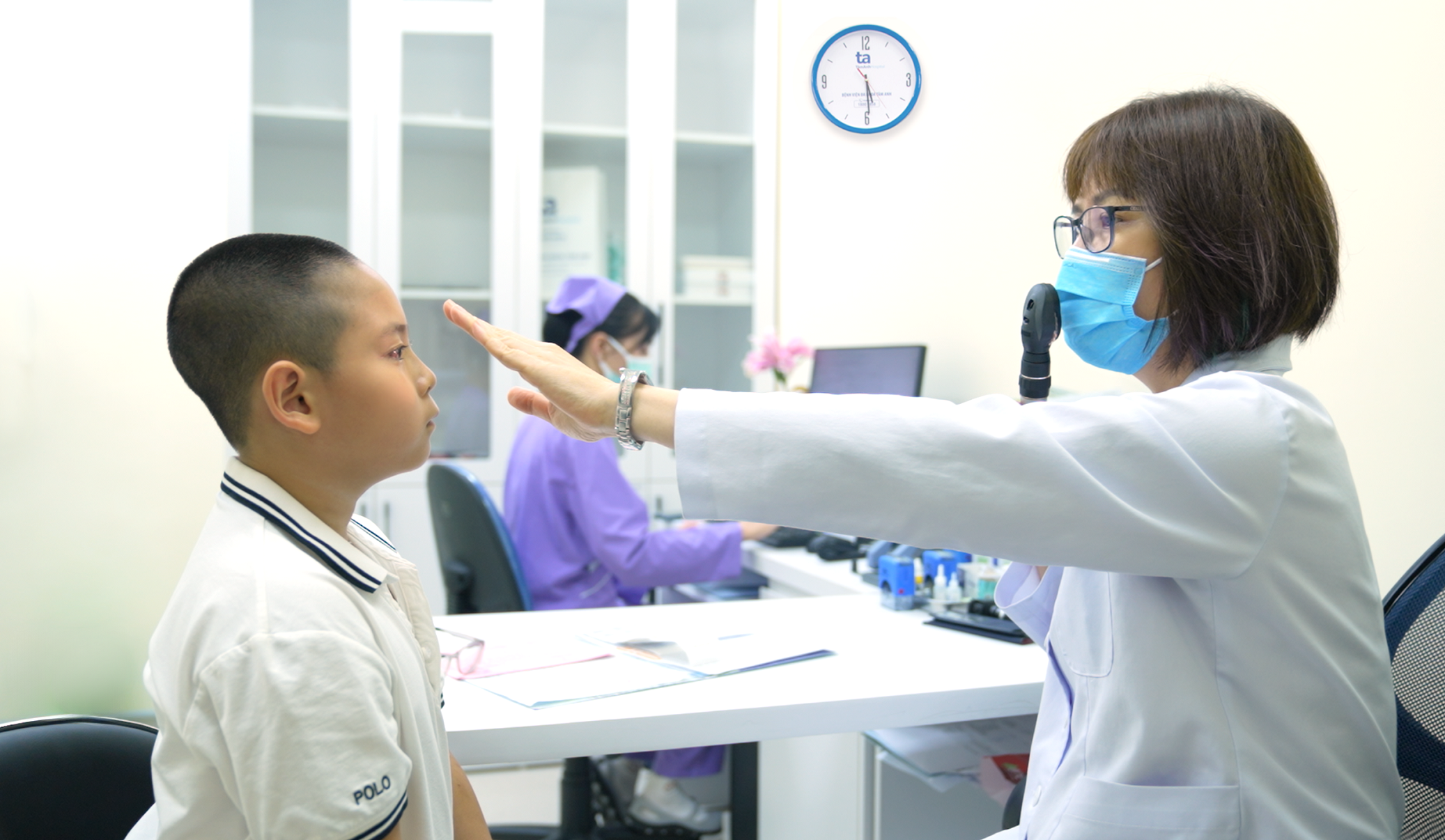Myopia, or nearsightedness, is a refractive error that occurs when the image of a distant object focuses in front of the retina, causing blurred vision at a distance.
Doctor Phung Van Thanh, from the High-Tech Eye Center at Tam Anh General Hospital, explains that congenital myopia is often hereditary. If a parent has severe myopia (over 6 diopters), their child has a higher risk of congenital myopia. Besides genetics, some cases are linked to eye development disorders during pregnancy, low birth weight, and premature birth. These factors can also increase the risk.
Recognizing congenital myopia in infants is often difficult because they are too young to clearly react to vision problems. However, parents can look for warning signs like frequent eye rubbing, blinking, head tilting, squinting to see faraway objects, and focusing intently for extended periods. Due to difficulty seeing at a distance, children might stand close to the TV, or lean in very close when looking at computers or books. Children with myopia are also more sensitive to light. They may squint, cover their eyes, or tear up when outdoors or exposed to bright lights. In some cases, a child's eyes may also be crossed (strabismus).
 |
A doctor examines a young boy's eyes. Photo: Tam Anh General Hospital |
A doctor examines a young boy's eyes. Photo: Tam Anh General Hospital
If parents observe these signs, they should take their child for an eye exam promptly. Refraction tests or fundus examinations can help detect and monitor retinal damage, a common complication of high-degree congenital myopia.
Children with congenital myopia, or those under 18 with myopia, are generally not candidates for refractive surgery because their eyes are still developing. During this period, parents should ensure their children wear appropriate glasses (eyeglasses or contact lenses) and implement myopia control measures to prevent further progression.
Children with congenital myopia need eye checkups every 6-12 months. Parents should discuss myopia control methods with their doctor. A child's study area should have adequate lighting. Parents should guide their children in healthy study and play habits, limit screen time, and encourage outdoor activities. A balanced diet rich in vitamins and minerals beneficial for eye health, such as vitamins E, A, and C, is also recommended.
Laser eye surgery on the cornea or phakic intraocular lens (Phakic ICL) implants may be considered for individuals over 18 whose myopia has stabilized.
Khue Lam
| Readers can submit questions about eye diseases here for doctors to answer. |












